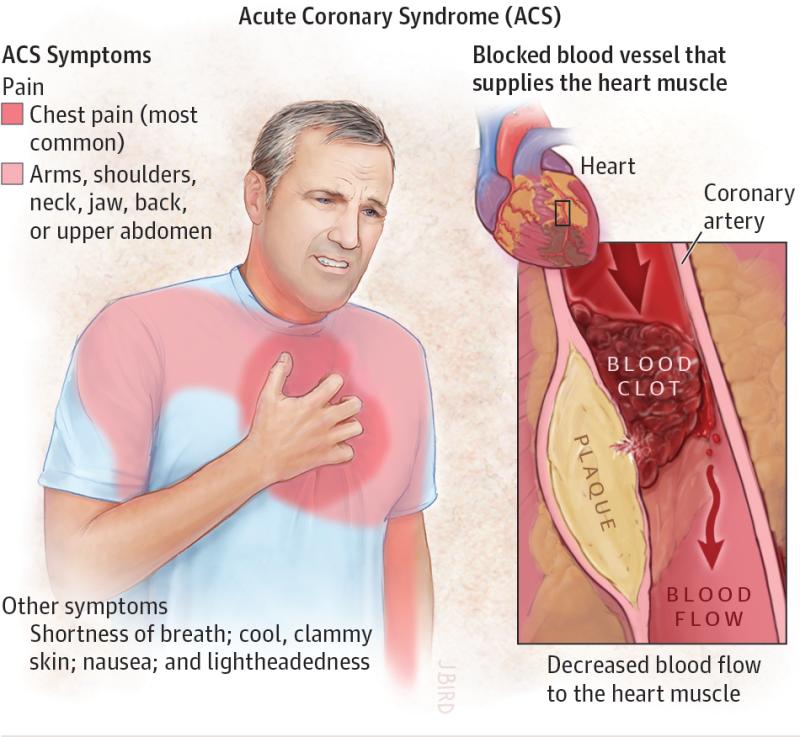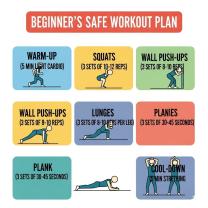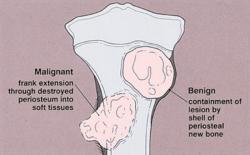What are early signs or symptoms of myocardial infarction?
Recognizing the early signs and symptoms of a myocardial infarction (heart attack) is crucial for seeking prompt medical attention, which can significantly improve outcomes. The symptoms of a heart attack can vary, and they may not always be severe. It's important to be aware of the following warning signs:
Chest Discomfort:
- The most common symptom is discomfort or pain in the chest. It may feel like pressure, fullness, squeezing, or pain. This discomfort can last for more than a few minutes or go away and come back.
Upper Body Discomfort:
- Pain or discomfort may extend beyond the chest to other areas of the upper body, such as the arms (especially the left arm), back, neck, jaw, or stomach.
Shortness of Breath:
- Feeling short of breath, even without chest discomfort, can be a warning sign of a heart attack. It may occur before or along with chest pain.
Cold Sweating:
- Profuse sweating, especially cold sweats, can be a symptom of a heart attack. The skin may feel clammy or unusually moist.
Nausea and Vomiting:
- Some people may experience nausea, vomiting, or a general feeling of being unwell, which can be associated with a heart attack.
Lightheadedness or Dizziness:
- Feeling lightheaded or dizzy can occur, and some individuals may faint. This may be due to a drop in blood pressure.
Fatigue:
- Unexplained fatigue or weakness, especially if it is sudden and severe, can be a symptom. Some people describe feeling unusually tired in the days or weeks leading up to a heart attack.
It's important to note that the symptoms of a heart attack can vary between individuals, and not everyone will experience the classic chest pain. Women, in particular, may be more likely to have atypical symptoms, such as shortness of breath, nausea, or back pain.
If you suspect that you or someone else is experiencing a heart attack, it is crucial to seek emergency medical attention immediately by calling emergency services (911 in the United States). Time is of the essence in treating a heart attack, and early intervention can save lives and minimize damage to the heart muscle.
Remember, never ignore chest pain or discomfort, and don't wait for symptoms to become severe. If in doubt, seek medical help promptly.
Recognizing a Heart Attack: Knowledge is Power
1. Familiar Foes: The Classic Signs:
Let's talk heart attacks. We've all heard the stories, seen the dramas: a crushing chest pain, gasping for air, cold sweat breaking out. These are the classic signs, the ones that scream "heart attack!" But remember, not everyone experiences them the same way.
2. Beyond the Spotlight: Atypical Symptoms, Especially for Women:
Women, for example, often present with different symptoms. They might have chest pain, but it's more of an ache, a tightness, or even just discomfort. They might feel nauseous, tired, or have pain radiating to the jaw or back. Don't be fooled by these quieter cues; they're just as serious.
3. The Golden Rule: When in Doubt, Check It Out:
Here's the key: if you, or someone you know, experiences any of these symptoms, don't hesitate. Time is muscle, and the sooner you get help, the better the chances of a full recovery. Call emergency services immediately. Don't wait for the "textbook" presentation; trust your instincts, and prioritize your heart.
Remember, knowledge is power. By recognizing the common and uncommon signs, you can be a lifesaver. Listen to your body, speak up, and don't gamble with your heart.
Bonus tip: Let's raise awareness! Share this information with your loved ones, especially women. Empower them to be their own heart heroes.












